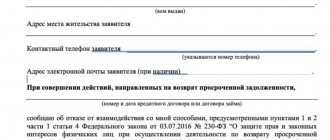Today, many plots of land are owned by the state, as an independent subject of civil law, along with legal entities and individuals. The state cannot dispose of this land for its intended purpose, but has the right to derive material benefits from leasing it to private individuals or commercial structures.
At the same time, the authorities of municipalities or other government agencies that own land and transfer it for disposal under a lease agreement can regulate the procedure for use (according to the Civil Code, in exclusively public interests). Although there are no fundamental differences between state and private property rights, there are still some restrictions. What is it and whose property is it, we will consider below.
How to rent land to build a house?
Property of public legal entities: what does it mean?
Since a public legal entity, that is, the state, is the owner of some property, it disposes of this property in the interests of the citizens of the country. State-owned lands are the property of the people, but can belong to individuals or legal entities under special conditions.
Land plots of public property have a number of features:
- they can only be transferred under a lease agreement and cannot become the subject of a pledge;
- the tenant does not have the right to dispose of the plot on his own behalf.
The state may own not only land plots, but also real estate such as residential apartments or houses.
Public ownership can be divided into types:
- state-owned, owned by individual constituent entities of the Russian Federation and the state as a whole;
- municipal, including the property of settlements, urban formations and other similar entities.
The concept of public property
According to Russian legislation, the state is exactly the same independent subject of law, like individuals and legal entities. But specifically the right of public property is the authorities (federal or municipal).
However, legal responsibility for property and land is still borne not directly by them, but by the state or its specific public legal entity (municipality).
It can be determined by the competence of the authority enshrined in the laws of the Russian Federation. Let's give a few examples.
Example No. 1
One of the most well-known ways to change the status of public property is privatization. Several stages have passed throughout the country, and now state institutions and their lands are being privatized once again. These processes involve the transfer of property into private hands, that is, into private ownership.
Various committees and property management funds have the right to shares and shares of privatized state and municipal companies. In case of violations of the privatization procedure, for example, by the sale of property by funds deliberately at a reduced value to private owners, either the state (if the object was under the jurisdiction of the federal center) or the administration of the municipality (city, village, etc.) bears responsibility.
From this article you will learn about the functions and tasks of the Cadastral Chamber. Read here why you need a project for surveying linear objects.
You may be interested in learning how to conduct a geodetic survey of a plot of land.
Example No. 2
Historical and cultural monuments are often the object of alienation due to forced decisions at the state level.
The right to carry out the procedure of purchase and sale or transfer of cultural property is vested in committees of the Ministry of Culture of the Russian Federation. Mistakes potentially made by them will be corrected on behalf of the state, and not specifically by a committee or fund under the ministry. For example, an unjustified gratuitous transfer of paintings to a representative of a museum in another state may result in direct material damage to society.
The legislative framework
Until 1990, the main form of land ownership was state. With the beginning of the privatization process, many objects were transferred to the private ownership of legal entities or individuals. Part of the land was transferred to municipal disposal.
Legislative framework regulating the circulation of public property:
- Land Code of the Russian Federation;
- Civil Code of the Russian Federation.
Chapter 3 of the Land Code of the Russian Federation regulates the procedure for the emergence and regulation of property rights to land plots. If we talk about the grounds for the emergence of state property, we should refer to Article 17.
The Civil Code in Article 218 lists the grounds on which property rights arise:
- as a result of a transaction in accordance with the law (under a civil law agreement);
- by obtaining land that does not have an owner;
- when a new plot is formed as a result of merger or division.
An additional basis is contained in Article 18 of the Land Code of the Russian Federation - this is a gratuitous allocation from federal property.
Concept and legislative regulation
Along with legal entities and citizens, the state in the Russian Federation acts as a separate and completely independent subject of law. Therefore, a very large share of real estate (not only land, but also buildings and structures) is publicly owned.
The public form of ownership implies that the property belongs to the following public entities:
- the state as a whole;
- a specific subject of the Russian Federation (represented by its executive authorities);
- to a separate municipality.
Public property rights are divided into two groups:
- state;
- municipal.
For a long time (almost the entire last century), it was public property (specifically state property) that was the main and, in most cases, the only form of ownership of this type of real estate such as land.

And only a couple of decades ago, the process of privatization began, that is, the registration of private rights to state or municipal property by legal entities and individuals.
The main documents with the help of which legislative regulation of public ownership is carried out are the Land and Civil Codes of the Russian Federation. Also, all legislative acts and Decrees of the Government of the Russian Federation that affect this issue should be taken into account.
Features of the implementation of the right
Public legal entities may use, own and dispose of property within the limits of their competence. All rules relating to this issue must be regulated officially at the level of issuing relevant regulations.
All rights to state or municipal property belong to the government, which can, in turn, delegate powers to other executive authorities. These may be various departments, ministries, as well as regional and local authorities. They exercise all their powers regarding property rights by issuing their regulatory documents.
Plots of rural and urban settlements are municipal property and the implementation of property rights to them is carried out by local government bodies. As a rule, the state transfers land to municipalities free of charge. Similarly, plots are transferred to their department if there is an official refusal from the previous owners. They can go:
- unitary enterprises;
- municipal institutions;
- non-profit institutions;
- legal entities or individuals.
What does public ownership of real estate mean in 2021?
In practice, only two disadvantages completely cancel out all the positive aspects: In fact, the collection of documents for privatization occurs in two stages. Preparation, collection and execution of documents for submission to the local municipality. The second stage of registration in Rosreestr, delivery for cadastral registration. Let's move on to the first point. What documents need to be prepared?
Today, many plots of land
is owned by the state as an independent subject of civil law, on an equal basis with legal entities and individuals. The state cannot dispose of this land for its intended purpose, but has the right to derive material benefits from leasing it to private individuals or commercial structures.
Participation of public legal entities in property circulation
- Legal relations of public property . The object is the property belonging to the subject. A significant difference between public and private property is its use only for its intended purpose.
- Privatization and deprivatization. Public legal entities participate in privatization processes, and are also removed from private property into public property through confiscation and nationalization.
- Commitment relationships. Public legal entities, in accordance with Federal laws, participate in this type of legal relationship regarding the fulfillment of obligations under contracts, where they act as customers of work and services for government needs.
- Corporate relations. Public legal entities have the right to participate in the authorized capital of organizations. This occurs on the basis of legislation and is the state’s contribution to increasing the volume of capital.
The disposal and management of real estate and land plots owned by the state is carried out by the authorized body of the Federal Property Management Agency and its territorial units.
The principle of separation of property of the Russian Federation
Based on the fundamental norms of domestic law, all property is distributed between different entities that manage it. State property does not have priority values, but it is the most valuable material resources of the country, such as land and natural resources.
State property is managed with the help of authorized government bodies. Among them are the Government and the President, federal structures and municipal structures.
State ownership of land is a priority and is therefore controlled especially carefully.
Objects of property law can be very diverse. These include people, different population groups, legal entities and private organizations. They do not have state ownership rights, however, in accordance with fundamental principles, they can exercise control over the management of material resources that are under the control of the country.
Advantages and disadvantages
The advantages of this form of ownership include:
- Protection against fraudulent activities . Neither an apartment nor a plot of land that is transferred to a citizen by the state under a lease agreement can be easily transferred into private ownership. This discourages scammers, since dealing with such objects becomes unprofitable and even dangerous.
- No need to pay annual tax . The tenant pays only the amount billed under the contract, and paying taxes to the budget is the owner’s responsibility. The tenant does not take part in financial settlements.
- Loss of property entails replacement . This means that in the event of certain force majeure circumstances (due to fire, flood, emergency), public housing may be lost, but in return the citizen must be provided with other housing.
- Opportunity to improve living conditions . If the family grows and the sanitary standards of living space per person do not meet, the state is obliged to provide housing that is larger in size.
The disadvantages of the public form of ownership include:
- Inability to make any real estate transactions because you are not the owner. It cannot be given away, exchanged, sold, etc.
- There is a risk of losing the property. The tenant is obliged to strictly comply with all the rules and requirements that the state imposes on the use of property. If they are violated, the citizen faces eviction without being provided with another in return.
The disposal of state and private property differs significantly in this regard. All aspects regarding federal or municipal property are dictated by the relevant legislative acts. The citizen disposes of private property independently in full and within the established norms.
Advantages
- The public form of ownership, which applies to land or apartments, does not prevent private individuals from using their right to privatize them and transfer them into private ownership.
- Public lands are more protected from fraudsters; in order to give them the status of private property, they will have to do a lot of work, collect documents, and go through a complex procedure.
- There is no need to pay taxes for land in public ownership that is leased. This is the problem of the owner, that is, the state or municipality.
- If a citizen lives in a municipal house, then if it is destroyed due to a fire or other disaster, the victim will receive another housing. This also applies to land leased from the state or municipality.








